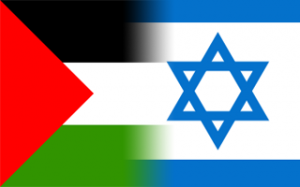Wednesday
Apr212010
Middle East Analysis: Cairo's Nuclear Move, Syria's Reaction
 Wednesday, April 21, 2010 at 16:27
Wednesday, April 21, 2010 at 16:27  At last week's Obama-led summit on nuclear security, amidst speculation that many Arab and Muslim states would launch an ambush upon Israel's nuclear weapons, the deputy prime minister Dan Meridor summed up the conference: "Thus far, there has been no ambush."
At last week's Obama-led summit on nuclear security, amidst speculation that many Arab and Muslim states would launch an ambush upon Israel's nuclear weapons, the deputy prime minister Dan Meridor summed up the conference: "Thus far, there has been no ambush."On the same day, President Obama called on Israel to sign the Non-Proliferation Treaty as he called on other states, such as India, North Korea, and Pakistan, to join:
Israel Document: Strategic Affairs Minister on “Existential Struggle” and No Concessions
Whether we're talking about Israel or any other country, we think that becoming part of the NPT is important. And that, by the way, is not a new position. That's been a consistent position of the United States government, even prior to my administration.
Haaretz subsequently quoted Western envoys reporting that Israel may come under new pressure next month at a UN meeting on atomic weapons, with the US, Britain and France considering support for Egypt's call for a zone in the Middle East free of nuclear arms. In a working paper that reportedly Egypt submitted to fellow treaty members, Cairo said the conference should formally express regret that "no progress has taken place on the implementation of the (1995) resolution" that backed the idea of "a Middle East zone free of nuclear weapons as well as other weapons of mass destruction" and should call for an international treaty conference by 2011.
Although Israel's UN mission had no official comment on the Egyptian proposal, an Israeli diplomat told Reuters the Jewish state will be ready to discuss issues such as a nuclear-weapon-free zone once there is peace in the Middle East. One Western official said:
They [the Israelis] have an interest here. If the Arabs get something they want on Israel, they'll be more supportive on Iran's nuclear program and further sanctions. Israel would benefit from that.
So for Egypt, the nuclear move is a "win-win" situation. It can increase its stock through giving the image of "driving Israel to the corner" and by leading an international gathering through which new and stronger pressure can be put on Tehran.
However, to establish this leading role in the Arab world, Cairo needs the support of a very significant country: Syria, which is the "closest" ally of Iran and the greatest conventionally-armed "threat" to Israel. With Saudi Arabia breaking the ice with Damascus, Syrian President Bashar Assad was due Tuesday night to land in Egypt.
What is Syria seeking from this "alliance"? Damascus would gain from Egyptian support to counter Israel's allegations that Syria transferred Scud missiles to Lebanon's Hezbollah. Secondly, Cairo, in its "big brother" role mediating Palestinian affairs, could increase Syria's influence in the Gaza Strip.




